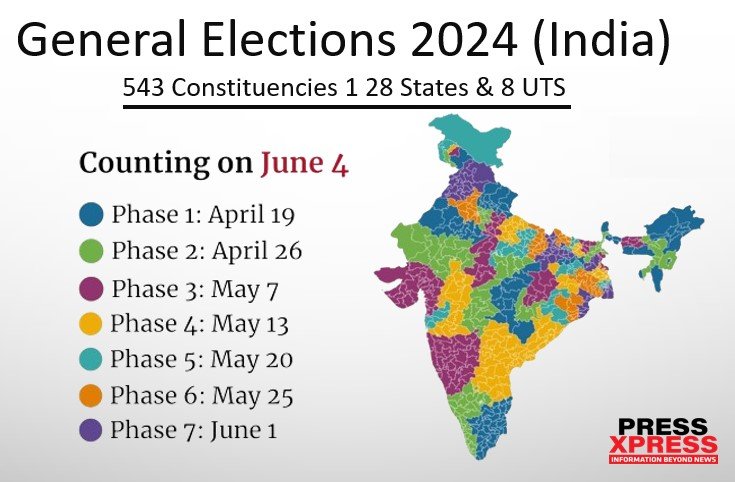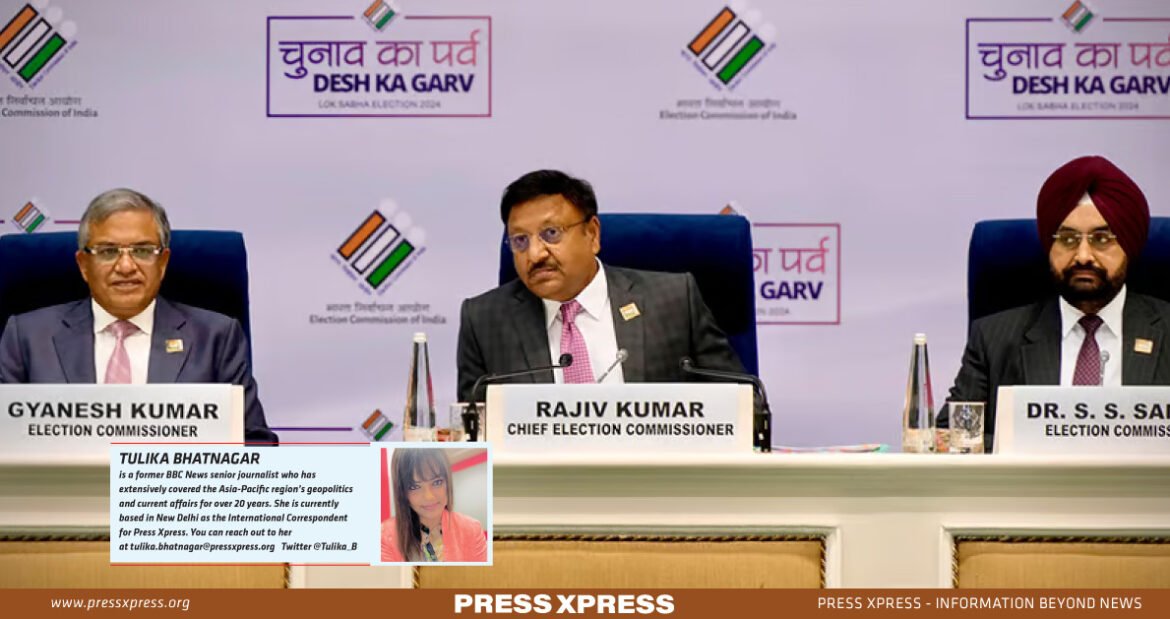India’s Election Commission (EC) announced the schedule for the next general election on 16 March.
The world’s most populous nation will hold the parliamentary (Lok Sabha) polls from 19 April to 1 June, over the course of six weeks.
The result will be announced on 4 June, Chief Election Commissioner (CEC) Rajiv Kumar told a news conference.
With over 960 million eligible voters, the election will be the largest the world has seen.
You Can Also Read: 10 THINGS TO KNOW ABOUT INDIA’S ELECTION
“We will take democracy to every corner of the country,” Kumar said. “It is our promise to deliver a national election in a manner that we… remain a beacon for democracy around the world.”
With the announcement, the Model Code of Conduct came into effect immediately. It means that the EC’s guidelines for setting standards of conduct by political parties and candidates during election campaigning and polling, are now enforced across the country.
The CEC also said that among the seven phases, the first one will have the highest number of constituencies – 102 – going to polls, followed by a gradual narrowing down of the numbers – 89 in second phase, 94 in third phase, 96 in fourth, 49 in fifth, 57 in sixth and 57 in seventh phase.
Firsts: Sustainable, Home Voting
The CEC announced that in a first, the massive Indian general election will also include the option of “home voting” for voters above the age of 85 years.
“If they opt for home voting, we will ensure the electoral process takes place at their doorstep,” Kumar said. He added that if they wish to visit the polling booths, provisions such as volunteers and wheelchairs will be available for them.
In another first, the Indian election will include efforts to be environmentally sustainable.
Giving details, the EC announced that the general election will focus on minimising paper use. “Less and less paperwork and how can we reduce the carbon footprint through recycling etc… is our commitment and responsibility towards the environment,” Kumar said.
In addition, e-books will replace paper versions, and sustainable waste management will be a directive for each of the 10.5 lakh polling booths.

Reactions
Prime Minister Narendra Modi wrote on his social media, “The biggest festival of democracy is here! We… are fully prepared… We are going to people on the basis of our track record of good governance…”.
President of Modi’s ruling Bhartiya Janata Party (BJP) JP Nadda welcomed the announcement, expressing confidence that BJP will win the election with an overwhelming majority.
However opposition leader from Congress party Shashi Tharoor called the schedule “unusually long”. “We have to learn to live with it,” he wrote on his official Twitter handle.
Opposition party TMC (Trinamool Congress), which enjoys dominance in West Bengal, reacted by saying that the EC did not take into account the State government’s views.
“We fail to understand the reasons for holding such a long election. This is quite surprising,” said TMC leader Sukhendu Sekhar Ray.
PM Modi is seeking a third straight term in the election, and has set an ambitious target of 370 seats for the BJP – and 400-plus for the National Democratic Alliance (NDA).
In 2019, the BJP won 303 seats – the most ever for the Hindu nationalist party that was formed in 1980.
For the full schedule of India’s general election 2024, see here.



